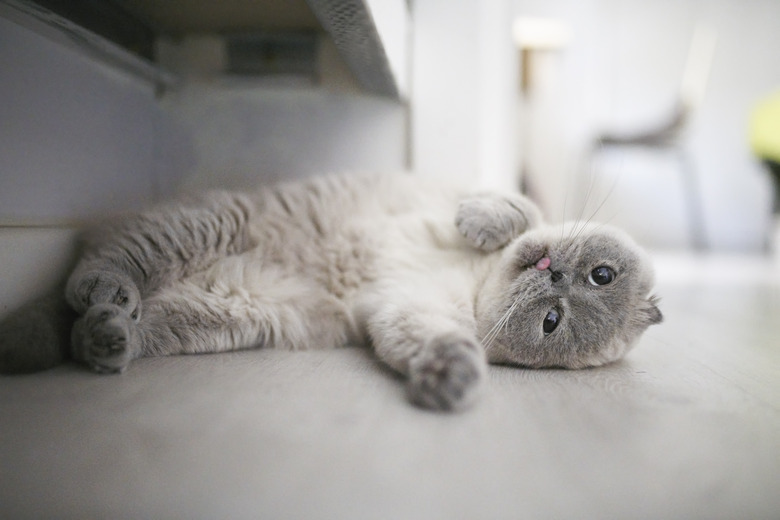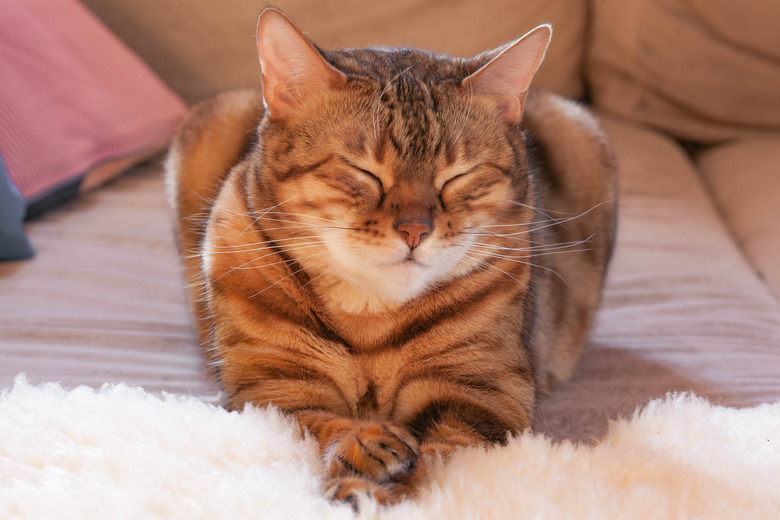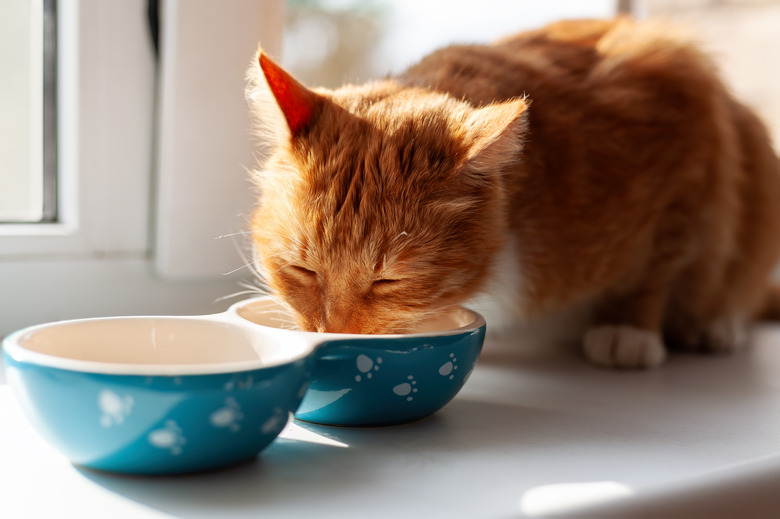Pumpkin For Cat Constipation
Constipation is a disturbance in the intestines that alters the flow of waste elimination in cats and other animals. It can usually be treated with an increase of fiber in the diet. Pumpkin is one of a few natural remedies that can help relieve your cat's constipation. It is high in fiber, inexpensive, and appealing to cats, but sometimes, you need stronger measures. If your cat is having trouble going to the litter box, it's best to take her to the vet, but pumpkin may help move things along.
Constipation in cats
Constipation in cats
One of the first symptoms a constipated cat may show is having less frequent and strained bowel movements. Often, the cause is simply a lack of fiber, dehydration, or inactivity.
Sometimes stress, medication, parasites, intestinal blockages, neurological problems, or pelvic injury can cause constipation. Older cats are most susceptible. It is always prudent to call a veterinarian if more serious symptoms are evident, like abdominal pain, nausea, and loss of appetite.
Pumpkin for cat constipation
Pumpkin for cat constipation
The insoluble fiber and water content in pumpkin makes it a good remedy to eliminate occasional constipation. Pumpkin can also benefit your cat because it aids in digestion and contains many of the vitamins and minerals a cat needs to stay healthy.
Canned pumpkin is a good choice because it is ready to eat, and you can simply mix it into your cat's wet food or with a bit of dry kibble. Look for plain canned pumpkin, not pumpkin pie filling. The pie filling will contain sugar and spices that aren't good for cats.
A small amount of pumpkin can relieve a mild case of feline constipation in 48 hours. Start by mixing a teaspoon of plain canned pumpkin into your cat's food once a day. You can increase this to two times per day and up to four teaspoons, but do so gradually. Too much pumpkin could end up giving your cat diarrhea.
Feeding your cat pumpkin
Feeding your cat pumpkin
Some cats actually enjoy the taste of pumpkin and will eat it right off the spoon. Others may prefer it to be mixed into their food. You can even find some canned foods for cats that contain pumpkin as a main ingredient.
Another option is fresh, steamed pumpkin that is cooled and cut into small pieces to mix with dry food. You can also try mixing a small amount of tuna oil with the canned pumpkin for a completely different taste that may tempt your cat's taste buds.
Dry cat food with pumpkin
Dry cat food with pumpkin
You'll find some dry cat food with pumpkin formulations on the market to feed to your cat. These pumpkin-rich foods are typically designed to promote digestive health or deal with hairballs in cats.
Some cats prefer to eat crunchy treats, so you can mix a bit of canned or mashed steamed pumpkin with some of their favorite treats. The different texture of the treats may appeal more to your cat than the soft texture of the pumpkin alone.
Keep your cat hydrated
Keep your cat hydrated
The best way to keep your cat from becoming constipated is to make sure that his water intake is sufficient. One way to accomplish this is to feed your pet canned food instead of dry food because canned food has moisture.
You can also set small water bowls or pet fountains in areas around the home where your cat likes to sleep, play, and groom. This will increase the potential for additional water consumption.
Continuous constipation in cats
Continuous constipation in cats
Keep track of your cat's tummy issues. In more stubborn cases of constipation, your cat may need an over-the-counter laxative. Check with your veterinarian for the type and dosage your cat will require.
For cats dealing with constipation as an ongoing issue, your veterinarian may recommend switching your cat to a high-fiber diet. This may improve her digestive issues.


